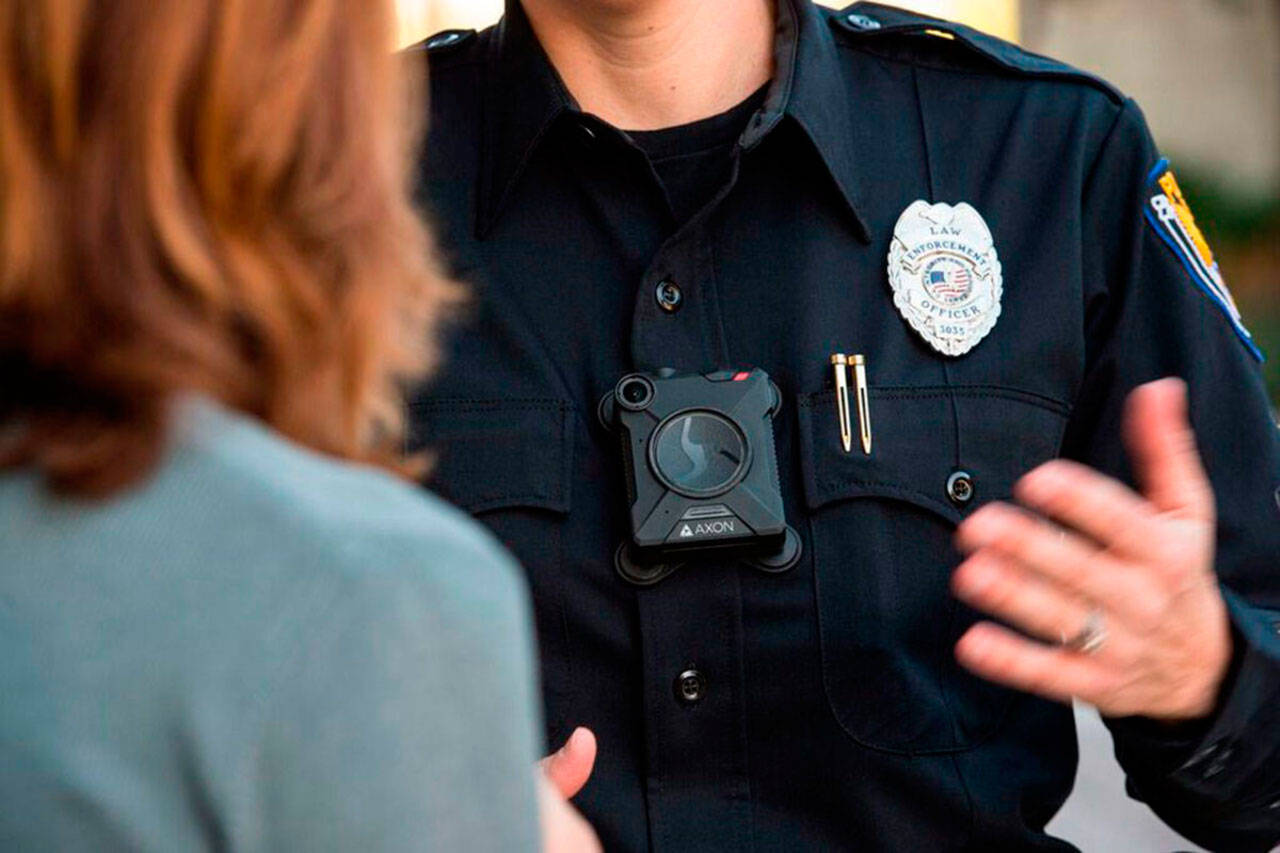Kent Police officers with new body-worn cameras will hit the streets the first week of October.
The 105 cameras are expected to be up and running by Oct. 1, said Police Chief Rafael Padilla in a city of Kent Facebook page video post on Monday.
“It’s a game changer on two fronts,” Mayor Dana Ralph said in the video. “It protects our public because it records the interactions that are happening. And it protects our police officers because it records the interactions that are happening.”
Ralph, in her second year as mayor, announced during her 2017 mayoral campaign that she would propose in 2018 to outfit officers with body cameras.
The city will pay $1.63 million to Arizona-based Axon Enterprise, Inc., over a five-year contract to outfit the officers with the cameras. Kent will pay Axon $408,931 the first year of the program followed by payments of $306,187 in each of the next four years for the $1.63 million total.
In addition, the city will pay about $386,000 in extra staff costs per year to hire a video technician to manage the cameras; a prosecuting attorney to review video for court cases; and an administrator in the city clerk’s office to handle public disclosure requests and redaction of video. That brings the annual cost of the body-camera program to about $794,000 the first year and $692,000 in each of the following four years.
Axon, which has a Seattle office, contracts with nearly 50 police forces in major cities to provide body cameras, according to its website. Officers in the Seattle, Spokane and Tukwila police departments use body-worn cameras. Axon also has a contract with the Los Angeles Police Department.
The city will use money from its new red-light camera program that started in July to pay for the cameras. Police officials estimate the 11 red-light cameras at six intersections will bring in between $1 million and $2 million per year with the $136 tickets.
“The hardware and back office software, which is expensive, and we need people to review recordings, and a prosecutor and someone to process video,” Padilla said about the costs. “There is a lot of personnel with the program.”
Padilla said a number of agencies do not use body-worn cameras because of the expense and the anticipated public disclosure requests.
“There are laws to protect privacy with youth, domestic violence,” Padilla said. “Just because you are recorded, the law says an agency just can’t release it to people. You have to redact it to provide it, which is a really big deal. That by itself is a nonstarter (for agencies) because who is going to do the work, it takes hours and hours.”
Kent, however, decided to launch the program after a six-month pilot program with body cameras on 11 officers that ended in May. Axon provided those cameras for free with hopes to get the Kent contract.
“It’s a transparency tool and protection for our officers,” Ralph said.
Talk to us
Please share your story tips by emailing editor@kentreporter.com.
To share your opinion for publication, submit a letter through our website https://www.kentreporter.com/submit-letter/. Include your name, address and daytime phone number. (We’ll only publish your name and hometown.) Please keep letters to 300 words or less.

